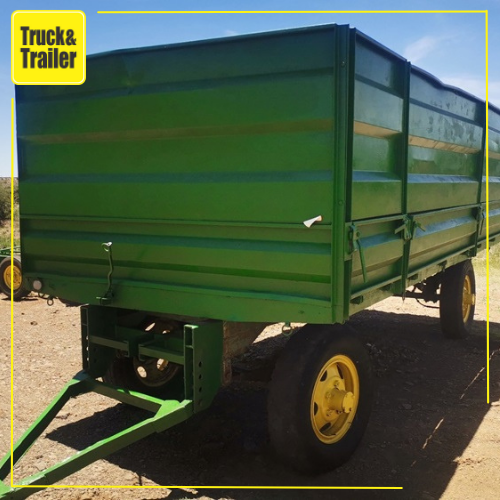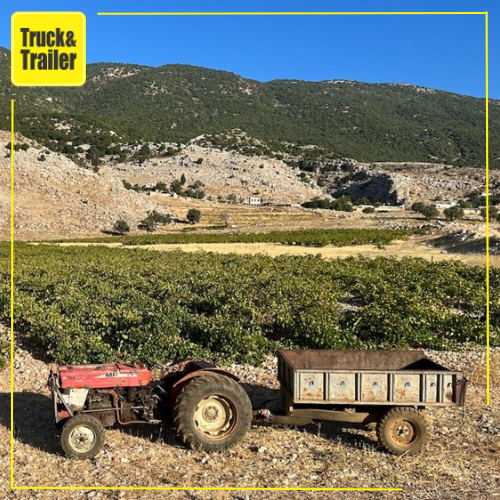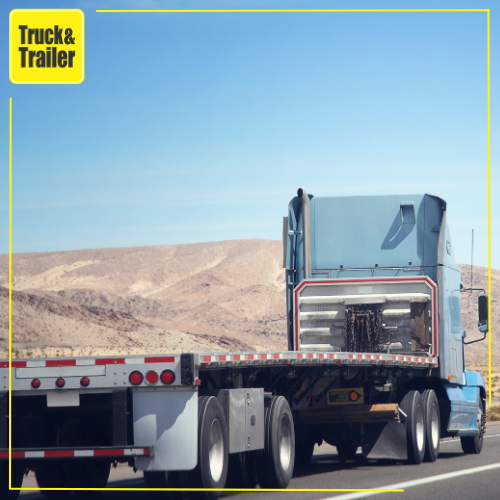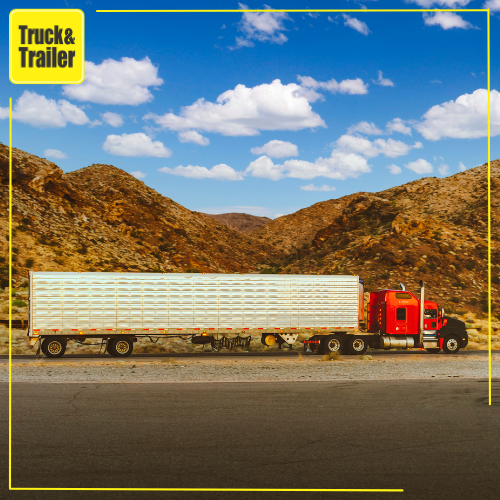Productivity and efficiency are critical in the field of modern agriculture. To improve productivity and optimise production, farmers are always looking for new and creative equipment and methods. Among these indispensable tools are agricultural trailers. These versatile workhorses play a crucial role in various farming tasks, offering a multitude of benefits that significantly enhance efficiency and output. From transporting crops and equipment to facilitating field operations, these trailers have become indispensable assets on farms worldwide. We explore the many benefits of using agricultural trailers in this article, as well as how they help make farming operations successful and sustainable. Are you trying to find a company you can hire trailers? The for rental page at Truck & Trailer is the only place to look. Get access to a range of rental trailers to meet your requirements.

Benefits of Agricultural Trailers:
1. Enhanced Efficiency:
Agricultural trailers streamline farm operations by efficiently transporting heavy loads of crops, equipment, and supplies across vast expanses of farmland. This eliminates the need for manual labor-intensive methods, saving time and labor costs. With the ability to carry large volumes in a single trip, farmers can complete tasks quicker, allowing them to focus on other essential aspects of farm management.
2. Increased Productivity:
By reducing downtime and optimising logistics, these trailers contribute to increased productivity on farms. Farmers can swiftly move harvested crops from the field to storage or market, minimising post-harvest losses and ensuring fresher produce reaches consumers. Additionally, these trailers facilitate timely distribution of inputs such as seeds, fertilisers, and pesticides, enabling farmers to adhere to planting schedules and maximise crop yields.
3. Versatility in Field Operations:
These types of agriculture trailers serve as versatile platforms for a wide range of field operations. Equipped with features such as hydraulic lifts, tilt beds, and customisable attachments, they can adapt to various tasks, including seed and fertiliser spreading, spraying, and harvesting. This versatility enhances operational flexibility, allowing farmers to efficiently address diverse farming needs throughout the growing season.
4. Cost-Effective Transportation:
Investing in these trailers proves to be a cost-effective transportation solution for farmers. Compared to outsourcing hauling services or purchasing multiple specialised vehicles for different tasks, owning versatile trailers offers long-term cost savings. Additionally, modern trailers are designed with fuel efficiency in mind, further reducing operating expenses over their lifespan.
5. Reduced Soil Compaction:
The design of the trailers, especially those equipped with low-pressure tyres and advanced suspension systems, minimises soil compaction during field operations. By distributing weight evenly and exerting lower ground pressure, these trailers help preserve soil structure and fertility. Reduced soil compaction promotes better root growth and water infiltration, ultimately leading to improved crop health and yield.
6. Improved Safety:
Safety is paramount in agricultural operations, and agricultural trailers are engineered with this principle in mind. Robust construction, advanced braking systems, and reflective markings enhance visibility and stability, reducing the risk of accidents during transportation and fieldwork. Moreover, modern trailers incorporate safety features such as rollover protection systems and secure tie-down points, ensuring the well-being of both operators and bystanders.
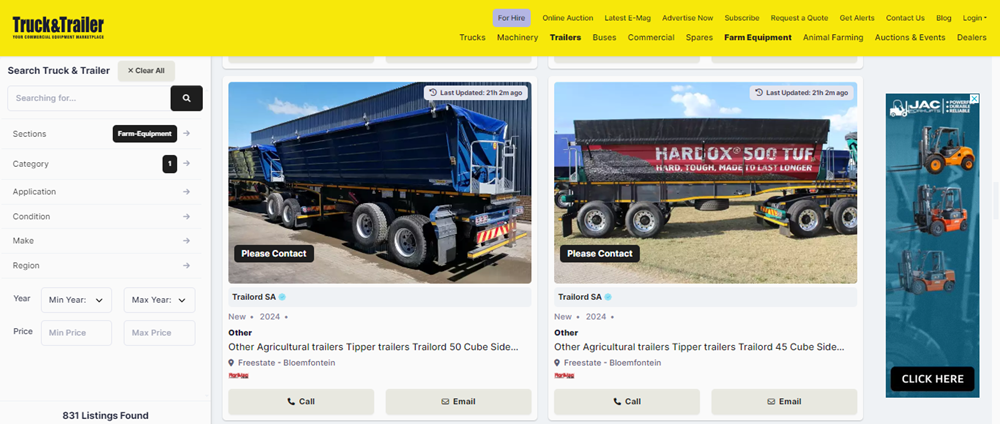
Are These Trailers Suitable for All Types of Farming Operations?
While agricultural trailers offer numerous benefits, their suitability for different types of farming operations varies depending on various factors such as farm size, terrain, crops grown, and specific tasks involved. Here's a closer look at the considerations:
Farm Size: The trailers are highly suitable for medium to large-scale farms where the need for transporting heavy loads of crops, equipment, and inputs is frequent. However, on smaller farms with limited acreage, the use of these trailers may be less practical, and smaller-scale equipment or manual methods might suffice.
Terrain: The terrain of the farm plays a crucial role in determining the suitability of the trailers. Farms with relatively flat terrain may benefit the most from trailers, as they can easily navigate across the fields without encountering significant obstacles. In contrast, farms with steep slopes, uneven terrain, or narrow pathways may find it challenging to maneuver trailers effectively.
Crops Grown: The trailers are versatile tools that can be adapted for various field operations, but their suitability may vary depending on the crops grown. For example, in grain farming where the primary tasks involve harvesting and transporting large volumes of crops, trailers are indispensable. However, in specialty crop production such as fruits or vegetables, where precision and delicacy are paramount, other specialised equipment may be preferred.
Specific Tasks: The suitability of these trailers also depends on the specific tasks involved in farming operations. While trailers excel in transporting harvested crops, equipment, and inputs, they may not be ideal for all tasks. For instance, operations requiring precise planting or harvesting in narrow rows may necessitate specialised equipment tailored to those tasks.
Specialised Needs: Some farming operations may have specialised requirements that standard agricultural trailers may not fully address. In such cases, custom-built or specialised trailers may be necessary to meet specific needs, such as transporting livestock, handling bulk liquids, or accommodating oversized equipment.
Environmental Considerations: In environmentally sensitive areas or organic farming operations, minimising soil compaction and preserving soil health are paramount. While certain type of these trailers are designed to reduce soil compaction, farmers may need to assess whether the benefits outweigh any potential environmental impacts associated with their use.
Overall, the benefits of agricultural trailers extend far beyond mere transportation. These indispensable assets play a pivotal role in optimising farm efficiency, increasing productivity, and promoting sustainability. From streamlining logistics to facilitating field operations, these trailers empower farmers to overcome challenges and achieve greater success in today's dynamic agricultural landscape. As the demand for food continues to rise, harnessing the capabilities of the trailers becomes increasingly essential for meeting global food security goals. By embracing innovation and leveraging the advantages of these trailers, farmers can navigate the complexities of modern agriculture with confidence, ultimately reaping the rewards of enhanced efficiency and profitability. If you're interested in hiring trailers? Take a look at the for hire page of Truck & Trailer. To meet your demands, choose from a range of trailer rentals available.
Read Related Articles
- How to Get the Most Out of Your Agricultural Trailer in South Africa
- Types of Agricultural Trailers you find on Truck & Trailer
- Essential Maintenance Tips for Agricultural Trailers in South Africa
- Essential Factors When Selecting an Agricultural Trailers for Sale
- Unveiling the Environmental Impact of Agricultural Trailer Usage

